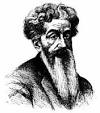Get Today in Masonic History into your Inbox. Sign up today for one of our email lists!
Need an article for your Trestleboard/Newsletter see our Use Policy
Ramón Emeterio Betances y Alacán is Born

Today in Masonic History Ramón Emeterio Betances y Alacán is born in 1827.
Ramón Emeterio Betances y Alacán was a Puerto Rican nationalist.
Betances was born Cabo Rojo, Puerto Rico in a house now known as "Logia Cuna de Betances" ("Betances' Cradle Masonic Lodge"). Betances father arranged to have Ramón tutored in the families private library. Betances father was a Freemason and it was the views of his father and his mother on social and political matters which formed Betances world views at an early age. At the age of 10, Betances was sent to study in France with a family named Prévost. The Prévost family had moved back to France from Puerto Rico. It is speculated Prévost was a Freemason as well and it may be why his father sent Betances with them to France.
While Betances was in France studying his father began the process to change the official recognition of the race of the family. On official records the family was listed as "mixed race". Betances father sought to have their race changed to "Caucasian" a change which enabled certain land rights and other rights. The family revealed intimate details and most the family, including Betances, was embarrassed by the whole process. Betances hated the whole idea of the process considering it hypocrisy. At one point in letters, he mocked the process stating the family was not "blancuzcos" ("whitish", which was a legal term), the family was more "prietuzcos" ("blackish").
In 1846, Betances received his high school diploma and after a brief vacation in Puerto Rico, attended the Faculty of Medicine Paris from 1848 to 1855. When Betances arrived in Paris in 1848 he witnessed the aftermath of the French Revolution. His time in Paris further altered his political views. His views put him firmly in favor of independence for Puerto Rico as opposed to the autonomy from Spain which was sought 17 years before his birth in 1810.
Betances returned to Puerto Rico in 1856, during a Cholera epidemic. At the time of his arrival in Mayagüez, the epidemic had not yet arrived in the city. Betances and a colleague, Bosra, worked with city managers to try and control the outbreak before it arrived. Unfortunately their efforts were not enough and the epidemic descended on the city. During the epidemic his step-mother and brother-in-law passed away, his father had passed away in 1854 and was unrelated to the epidemic. Spanish born military in the city demanded preferential treatment from Betances and Bosra. Betances put them on the bottom of every list caring for Puerto Ricans first.
Betances believed in the abolishment of slavery in Puerto Rico. He eventually, based on his beliefs, formed civic organizations meant to bring about the abolition of slavery. At one point the groups, both the ones started by Betances and the ones started by others, were referred to as Secret Abolitionist Societies. In one of the groups Betances started, on Sundays several of the members waited by the baptismal font at the local church. When slave owners brought slave families to the font, before the baptism of the child (the price of a slave in Puerto Rico rose if the slave had been baptized), Betances and others gave money to the parents so they could buy their child's freedom on the spot. After being freed the child was baptized within minutes and the baptism gave the place the nickname "aguas de libertad" (waters of liberty).
After being exiled from Puerto Rico for his abolitionist activities, Betances traveled between France and Puerto Rico. He lost the woman he was to marry and mourned her loss for many years after, burying himself in his work.
By 1861, Spain was involved in conflicts across the Latin America. Betances and others saw this as an opportunity to fight for independence from Spain. Until his death, Betances wrote a variety of pieces trying to stir a nationalist interest in the people of Puerto Rico. The most famous of which was "Los Diez Mandamientos de los hombres libres" (The Ten Commandments of Free Men).
Betances passed away on September 16th, 1898.
In the fields of Medicine, Literature and Politics, Betances influence is often understated. It is only in recent years the true nature of his influence is being recognized.
Betances joined Logia Unión Germana in San Germán, Puerto Rico. He later helped found Logia Yagüez in Mayagüez, Puerto Rico.
This article provided by Brother Eric C. Steele.

